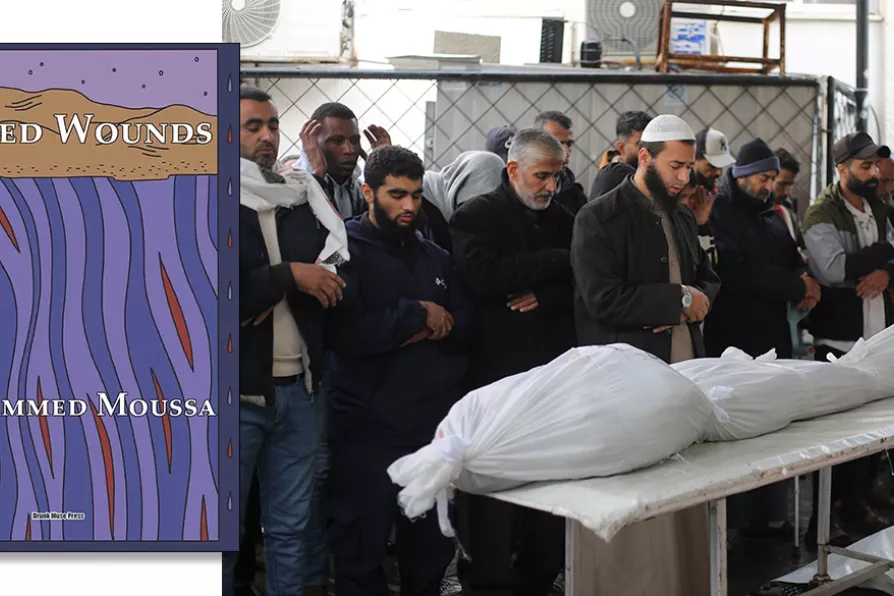DENNIS BROE searches the literary canon to explore why a duplicitous, lying, cheating, conning US businessman is accepted as Scammer-in-Chief

 Palestinians pray for people killed in the Israeli bombardment of the Gaza Strip in Rafah on Wednesday, 13 December 2023
[Hatem Ali/AP]
Palestinians pray for people killed in the Israeli bombardment of the Gaza Strip in Rafah on Wednesday, 13 December 2023
[Hatem Ali/AP]
Salted Wounds
Mohammed Moussa, Drunk Muse Press, £10
ONE small side-effect of Israel’s genocidal response in Gaza to the Hamas atrocities of October 7 is to thrust Gazan poets forward. At a time when Palestinians are being dehumanised and murdered with the support of Western powers, when Israel is destroying hospitals, schools, universities, the need to hold on to the common culture of the people becomes a more urgent one.
Possibly the best-known Gazan poet is Mosab Abu Toha, who was kidnapped by the Israeli army as he fled to southern Gaza with his family last week, and then released — after a beating — due to international pressure. However, he is just one member of the Gaza Poets Society (see https://www.facebook.com/gazapoetssociety/), that brings together 32 young Gaza poets. That was set up by fellow poet Mohammed Moussa, and it is Moussa’s collection, Salted Wounds, published in July this year, we review here.
Moussa grew up in the Jabalia Refugee Camp, in the north of Gaza, now largely levelled, and its inhabitants killed or driven out by the Israelis. He had already become an exile in Turkey before the current slaughter – remember, though very much the worst, this is far from the first Israeli bombing attack on Gaza and its population. The title of the collection comes from a poem that tells us: “In Gaza, salt heals/ our grandparents put salt/ on their untouched cuts,” but asks “Why salt doesn’t heal since I left.”

How can we claim to be human while our countries still support and defend the massacres in Palestine, asks HUGH LANNING

ANDY HEDGECOCK recommends that these beautifully written diaries from Gaza be essential reading for thick-skinned MPs
Poems by Mohammed Moussa, Mark Kirkbride, Omar Sabbagh, Ruth Aylett, Mark Paffard and Patrick Jones










